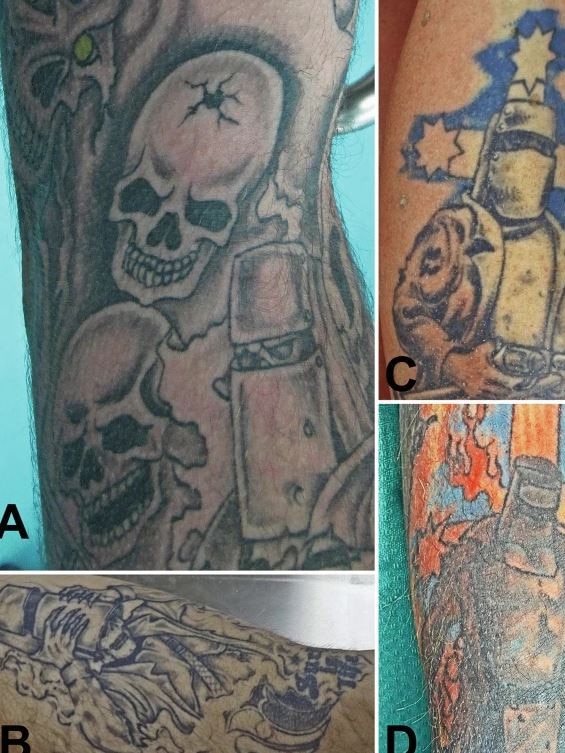Forensic pathologist makes claim about Ned Kelly tattoos
An Australian pathology expert with the nicknam “Dr Death” has revealed an odd trend he identified about those with a popular tattoo.
Lifestyle
Don't miss out on the headlines from Lifestyle. Followed categories will be added to My News.
A forensic pathologist has shared the bizarre trend he has noticed about those who have a popular Australian tattoo.
Roger Byard, an Emeritus Professor at The University of Adelaide who is nicknamed Dr Death by his colleagues, specialises in the study of death and injuries.
His profession not only helps solve crimes, but can also help prevent future deaths in cases such as the research his autopsies provided on Sudden Infant Death Syndrome to help lower early childhood deaths.
Recently, Mr Byard appeared on I Catch Killers with Gary Jubelin, where he revealed an anecdotal trend about a tattoo he has noticed during his 30 year career.
After getting involved with Foxtel series Lawless, which looked at figures such as Ned Kelly and the Kenneth Brothers, Mr Byard said he kept looking into Bushrangers.

“We were basically trying to see what evidence there was for the historical stories. You look at Ben Hall — the popular theory is that police snuck up on him and shot him in his swag,” Mr Byard said on the podcast.
“The police version is a bit different.”
It led him to notice, anecdotally, a piece of information about people who had ink of Australia’s most well known bushranger Ned Kelly, who was executed for killing Constable Thomas Lonigan in 1880.
“I just noticed that a lot of the people coming into the mortuary with Ned Kelly tattoos had died violent deaths,” he said.
I did a retrospective study and then I did a 10-year prospective study. Sure enough like 80 per cent of them had died of accidents or suicides or homicides. All sorts of strange things.”
Mr Byard clarified that this was in a forensic context and just because you had a tattoo of Ned Kelly it didn’t mean you were “marked” for a violent death.
He said he thought it was because the tattoo was a mark of “drug associated” lifestyles or other forms of risk taking.
Social media users claimed the tattoo represented a certain kind of lifestyle.
“I think it’s also the demographic within society that idolises Ned is mostly those who live reckless and/or dangerous lives,” one said.


Another said: “Wow that feels energetic. They say tattooing names on you also transfers a similar energy.”
It’s not the first time Mr Byard has discussed this topic, in 2023 he and Hamish Maxwell-Stewart had a paper published in Forensic Science, Medicine and Pathology journal.
The paper explained that the tattoos often depicted Kelly in his armour or his alleged last words “Such is life”.
Their study ran from January 1, 2011, to December 31, 2020, at Forensic Science South Australia. Over this period, 38 people ended up in the morgue with Ned Kelly inspired tattoos. Ten of these were natural deaths, while 15 were suicide, nine were accidents and four were homicides.
The disclaimer on the paper was that it was not a population-based study, but could help inform medical experts in their interpretation of injuries.
Originally published as Forensic pathologist makes claim about Ned Kelly tattoos





